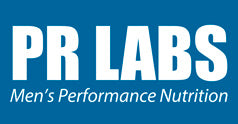Should I Quit Drinking Alcohol After Prostate Surgery?
Prostate surgery is a significant medical procedure that requires careful recovery and lifestyle adjustments, including diet changes. One common question that arises is whether it's necessary to quit drinking alcohol after undergoing prostate surgery. In this article, we'll explore the potential effects of alcohol consumption on post-prostate surgery recovery and provide insights to help you make an informed decision.
What Happens During Prostate Surgery?
During prostate surgery, the surgeon aims to remove part or all of the prostate gland, depending on the specific condition being treated. The most common types of prostate surgery include:
Radical Prostatectomy: This procedure involves the complete removal of the prostate gland, including the surrounding tissues. It can be performed through different approaches: a. Open Surgery: A large incision is made in the lower abdomen to access the prostate gland. b. Laparoscopic Surgery: Several small incisions are made, and a laparoscope (a thin, lighted tube with a camera) and surgical instruments are inserted to remove the prostate gland. c. Robot-Assisted Surgery: Similar to laparoscopic surgery, but the surgeon controls robotic arms to perform precise movements.
Transurethral Resection of the Prostate (TURP): TURP is a minimally invasive procedure where the surgeon removes prostate tissue through the urethra using a resectoscope. This technique is commonly used to treat benign prostatic hyperplasia (BPH), a non-cancerous enlargement of the prostate gland that can cause urinary symptoms.
Transurethral Incision of the Prostate (TUIP): TUIP is a procedure that involves making small incisions in the prostate gland and bladder neck to relieve pressure on the urethra. This technique is often used to treat BPH and can help improve urinary flow.
Transurethral Needle Ablation (TUNA): TUNA uses low-level radiofrequency energy delivered through needles to heat and destroy excess prostate tissue. It provides relief from urinary symptoms caused by BPH.
Laser Surgery: Various laser techniques, such as GreenLight laser therapy and Holmium laser enucleation, are used to remove or vaporize prostate tissue. These procedures offer less bleeding and quicker recovery compared to traditional surgery.
How Drinking Alcohol After Prostate Surgery Can Affect You
Potential Interactions with Medications
After prostate surgery, your doctor may prescribe medications to manage pain, prevent infections, or regulate urinary function. Alcohol can interact negatively with certain medications, potentially diminishing their effectiveness or causing adverse and
harmful side effects.
It's crucial to consult your healthcare provider about potential interactions between alcohol and prescribed or over-the-counter medications.
Impact on Healing Process
Alcohol is known to impair the body's natural healing process. The body needs time to recover and repair tissues, while alcohol consumption hinders the process.
Alcohol also thins the blood and impairs clotting, which may lead to increased bleeding during or after surgery.
Too much alcohol consumption can also trigger inflammation in the body. Inflammation is a natural response to injury or surgery, but excessive or prolonged inflammation impedes the healing process. Alcohol-induced inflammation can interfere with tissue repair
and regeneration.
Bladder Irritation and Incontinence
Prostate surgery can sometimes result in temporary urinary incontinence or irritation
of the bladder.
Alcohol acts as a diuretic and can increase urine production, potentially exacerbating
these issues.
Limiting or abstaining from alcohol can help reduce the frequency of urination and minimize bladder irritation during the recovery phase.
Sexual Function and Hormonal Changes
Prostate surgery can impact sexual function due to changes in hormone levels or nerve damage. Alcohol is known to affect hormone regulation and can further contribute to
sexual dysfunction.
It's essential to discuss any concerns regarding sexual health with your healthcare provider, who can provide guidance tailored to your specific situation.
Psychological Well-being
The recovery period after prostate surgery can be emotionally challenging. Alcohol is a depressant and can worsen feelings of anxiety, depression, or stress.
Finding healthier coping mechanisms, such as engaging in hobbies or seeking support from loved ones, is crucial for maintaining positive mental health during the recovery phase.
Consult Your Doctor
As with any medical concerns or questions, please consult your doctor regarding alcohol consumption after prostate surgery. Your doctor can provide personalized guidance based on your specific surgical procedure, medical history, and recovery progress.
Play it Safe
Limiting alcohol consumption is always a good idea, especially after prostate surgery.
While there is no one-size-fits-all answer to whether you should quit drinking alcohol after prostate surgery, it's essential to prioritize your recovery and overall well-being. Considering the potential interactions with medications, the impact on the healing process, bladder irritation, sexual function, and psychological well-being, it may be advisable to abstain from alcohol for a period as recommended by your healthcare provider.
Join Our Community & Save 10% Off Your First Order
We’ll send you a coupon code for 10% off your first order. Stay on our list
and we’ll keep you updated with tips for optimal health, new product launches, sales, and more!




